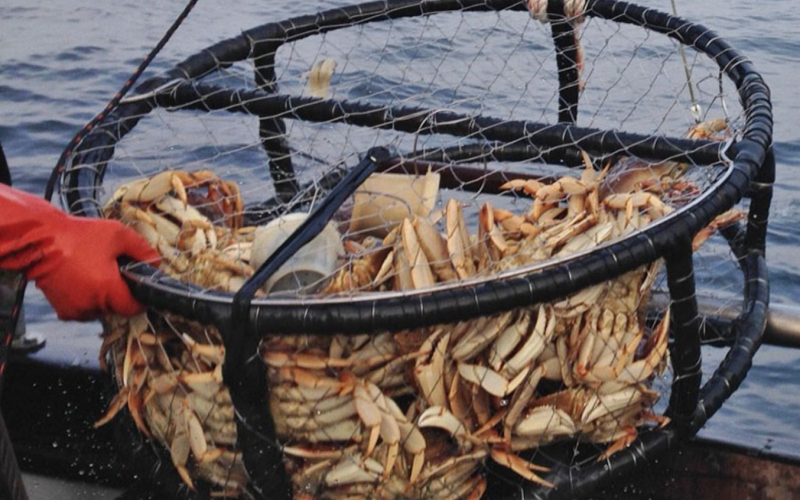The California commercial Dungeness crab fishery has been delayed a second time over the potential for humpback whale entanglements in gear, and poor meat quality in the northern fishing zones 1 and 2, the state Department of Fish and Wildlife said Friday.
The northern zones had been scheduled to open on Dec. 1 but testing turned up poor crab meat quality test results for Mendocino, Humboldt and Del Norte counties. The commercial fishery in zones 1 and 2 will be delayed until at least 12:01 a.m. on Saturday, Dec. 16 pending another round of meat quality testing, the agency said.
Meanwhile the commercial fishery in zones 3-6 remains delayed, “due to the presence of high numbers of humpback whales and the potential for entanglement with lines and traps in this fishery,” according to the department. Whale sightings and a reported entanglement Nov. 11 have already delayed the season, a recurring situation in recent years.
CDFW Director Charlton H. Bonham is to get the next risk assessment around Dec. 7 and re-evaluate temporary recreational crab trap restrictions and the commercial fishery delay.
The environmental group Oceana made a pitch Friday for furthering experiments with on-demand, or “pop-up” gear in spring 2024 that potentially could reduce buoys and vertical lines in the fishery.
Geoff Shester, Oceana’s California campaign director and senior scientist, and a member of the California Dungeness Crab Fishing Gear Working Group, said forecasters expect to see “strong El Niño conditions in the coming months, which are likely to drive humpback whales closer to shore as they follow available prey — like anchovy — into shallower waters.”
“With predictions that a strong El Niño event could persist through the spring, we are likely to see the crabbing season come to an early close, compressing an already shortened season with the statewide delay,” said Shester. “Innovative pop-up fishing gear will be available for testing under experimental fishing permits this spring, and once authorized, could be a way to extend the fishing season into spring months, providing additional fishing opportunities in a way that is also safe for whales.”







